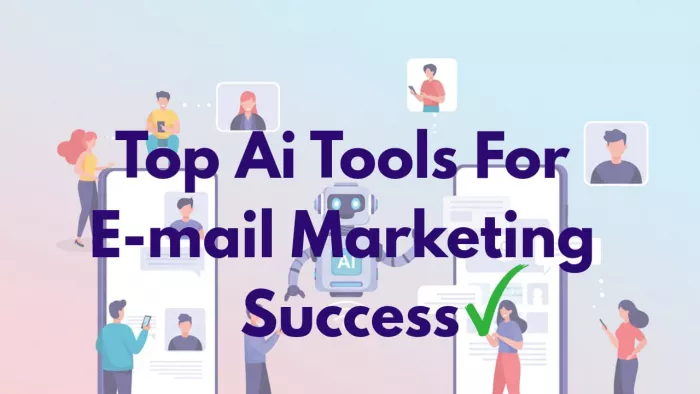
Introduction
Email marketing remains one of the highest-ROI digital marketing channels, delivering an average return of $36 for every $1 spent. In 2026, Artificial Intelligence (AI) is no longer just an add-on—it’s the backbone of smart, scalable campaigns. From hyper-personalized content to predictive analytics, AI tools are helping marketers increase open rates, engagement, and conversions while cutting down on manual effort.
This article explores the top AI tools for email marketing in 2026, with insights into their features, performance, pricing, and user feedback—so marketing teams, agencies, and startups can choose wisely.
Why AI Tools Matter in Email Marketing
AI brings a data-driven layer to email campaigns, making them smarter and more customer-centric:
Smarter Segmentation – AI dynamically groups audiences by behavior, purchase history, and engagement.
Personalized Content – Subject lines, recommendations, and copy are tailored per recipient.
Optimized Send Times – Campaigns are sent when individuals are most likely to open.
Predictive Lead Scoring – AI ranks leads by conversion potential.
Workflow Automation – Behavior-triggered actions (cart abandonment, re-engagement, onboarding) reduce manual work.
The result: higher engagement, reduced churn, and stronger customer loyalty.
The Top AI Email Marketing Tools
1. ActiveCampaign
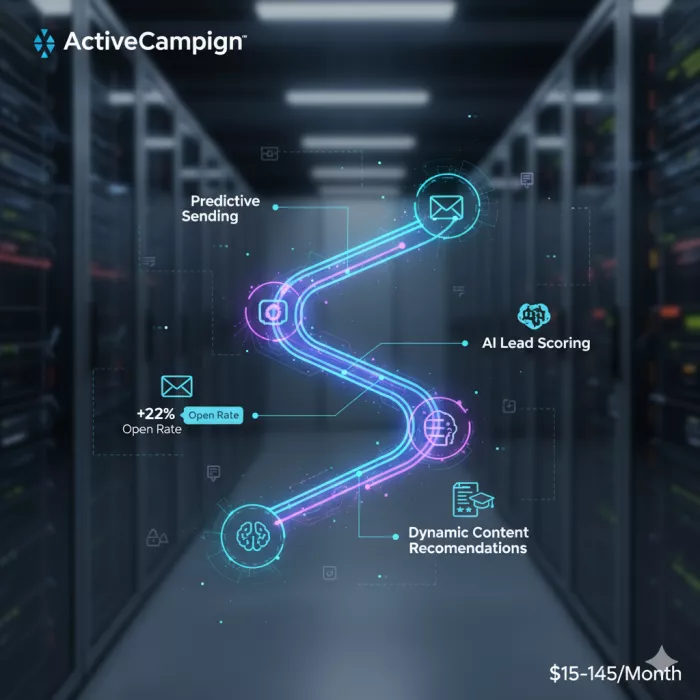
Best for: Businesses seeking advanced customer journey mapping.
Key AI Features: Predictive sending (open rate boost up to 22%), AI-based lead scoring, dynamic content recommendations.
Pricing: Starts at $15/month, scaling to $145/month.
User Feedback:
G2: 4.5/5 – praised for robust workflows; some find it overwhelming to learn.
Trustpilot: 4.6/5 – strong automation, but pricing is steep for startups.
Pros: Advanced automation, granular segmentation, deep journey insights.
Cons: Steep learning curve, high cost for small businesses.
2. Brevo (formerly Sendinblue)
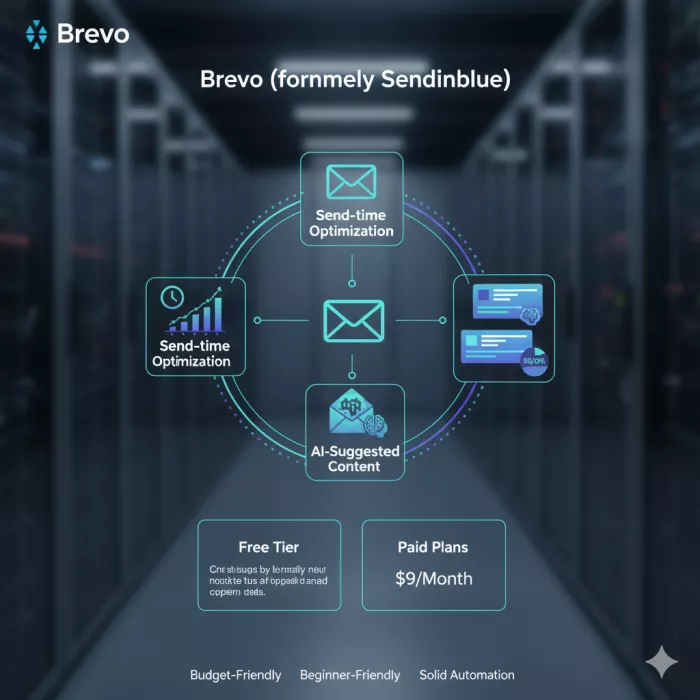
Best for: Small and medium businesses needing affordability and simplicity.
Key AI Features: Send-time optimization, AI-suggested subject lines and body copy, automated A/B testing.
Pricing: Free tier available; paid plans start at $9/month.
User Feedback:
Trustpilot: 4.2/5 – easy to use, affordable; limited AI on free tier.
G2: 4.3/5 – versatile, but advanced AI gated in higher tiers.
Pros: Budget-friendly, beginner-friendly, solid automation.
Cons: Limited AI in free plans, occasional support delays.
3. Mailchimp
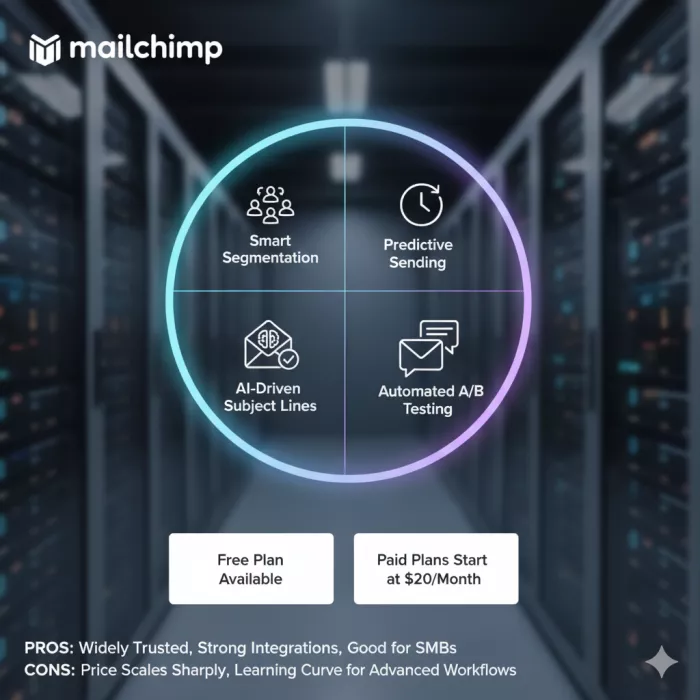
Best for: Widely adopted, user-friendly email campaigns.
Key AI Features: Smart segmentation, predictive sending, AI-driven subject lines.
Pricing: Free plan available; paid starts at $20/month.
User Feedback:
G2: 4.3/5 – intuitive UI, broad integrations; costs rise with list size.
Trustpilot: 3.9/5 – reliable, but free plan lacks advanced AI.
Pros: Widely trusted, strong integration ecosystem, good for SMBs.
Cons: Price scales sharply with contacts, advanced workflows need learning.
4. HubSpot
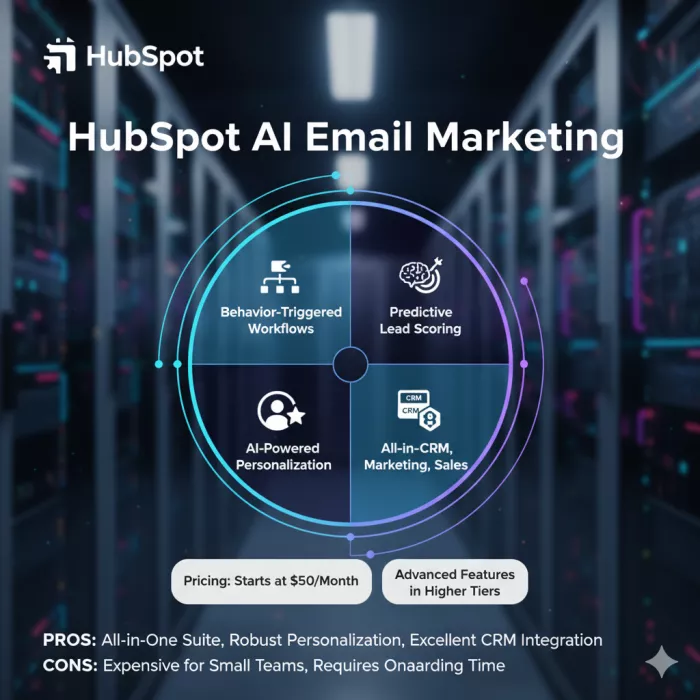
Best for: B2B companies and businesses scaling sales pipelines.
Key AI Features: Behavior-triggered workflows, predictive lead scoring, AI-powered personalization.
Pricing: Starts at $50/month; advanced features in higher tiers.
User Feedback:
Capterra: 4.4/5 – excellent CRM integration, powerful AI.
Trustpilot: 4.2/5 – automation praised, but pricing steep.
Pros: All-in-one suite (CRM + marketing + sales), robust personalization.
Cons: Expensive for small teams, requires onboarding time.
5. Optimove
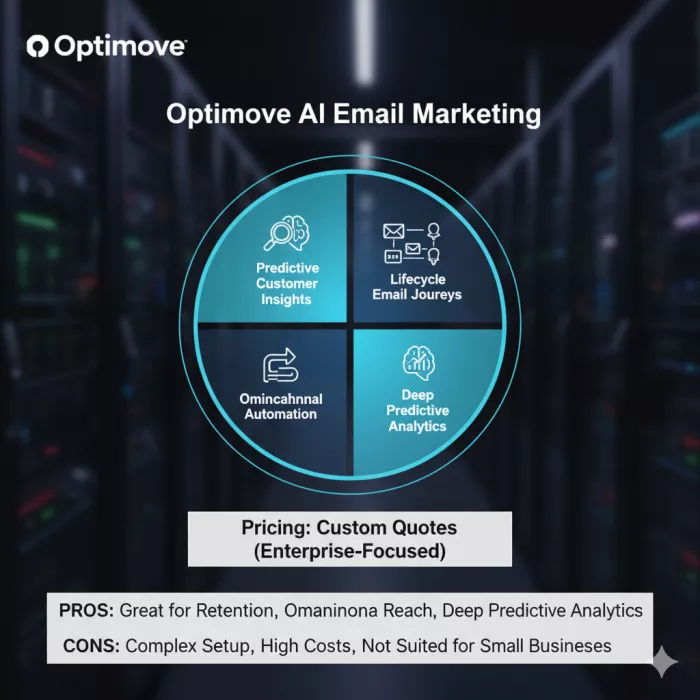
Best for: Large enterprises focused on retention and loyalty.
Key AI Features: Predictive customer insights, lifecycle email journeys, omnichannel automation (email, SMS, push).
Pricing: Premium, enterprise-focused (custom quotes only).
User Feedback:
Trustpilot: 4.5/5 – excellent for retention; complex for smaller teams.
Pros: Great for retention, omnichannel reach, deep predictive analytics.
Cons: Complex setup, high costs, not suited for small businesses.
Key Considerations When Choosing an AI Email Tool
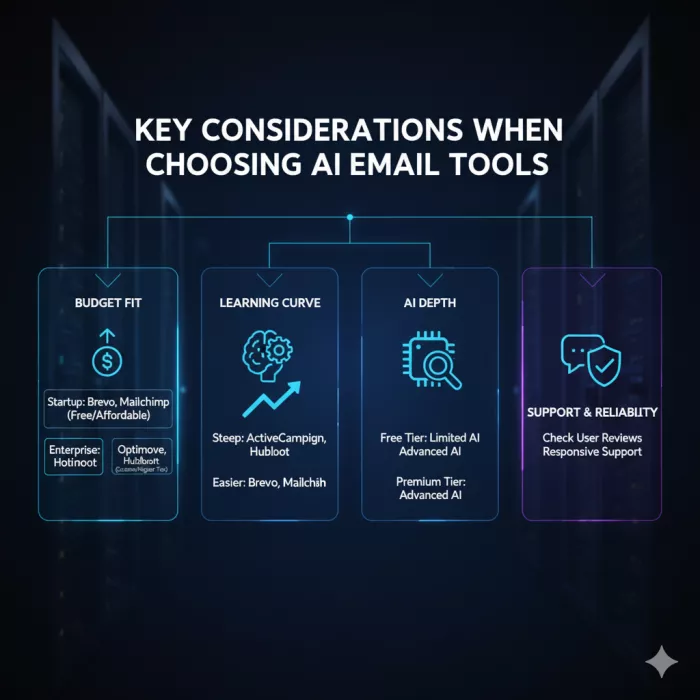
Budget Fit: Free and affordable tiers (Brevo, Mailchimp) are good for startups; enterprise tools (Optimove, HubSpot) suit larger teams.
Learning Curve: Some tools demand onboarding and training (ActiveCampaign, HubSpot).
AI Depth: Free plans often limit AI features—trial premium tiers before committing.
Support & Reliability: Check reviews for customer support responsiveness.
FAQs
Q: Can AI guarantee higher conversions?
A: AI improves targeting and personalization, but success also depends on your strategy and content.
Q: Which AI email tool is best for startups?
A: Brevo and Mailchimp are affordable entry points with solid AI essentials.
Q: What’s the advantage of AI over standard automation?
A: AI doesn’t just react to user actions; it predicts future behavior to optimize timing, content, and targeting.
Conclusion
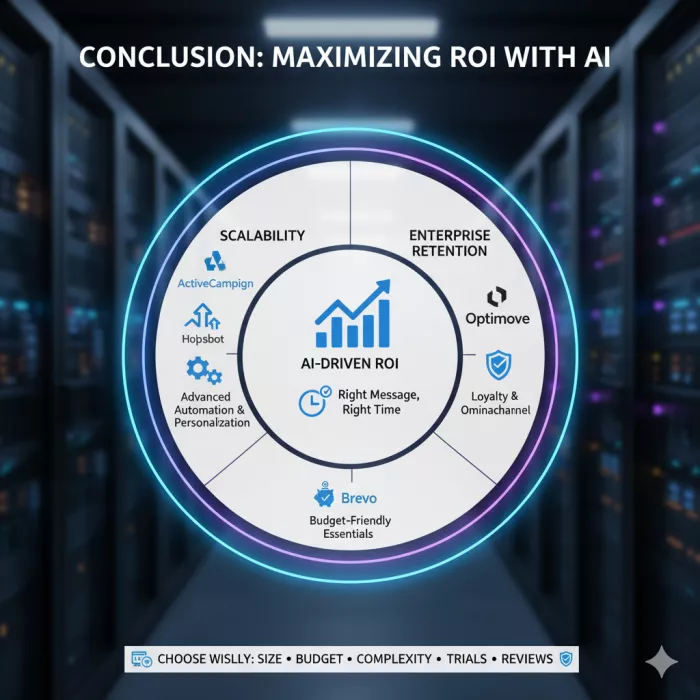
AI tools are redefining email marketing in 2026. Platforms like ActiveCampaign and HubSpot provide advanced automation and personalization for scaling businesses, while Brevo and Mailchimp balance affordability with essential AI features. For enterprises, Optimove stands out for customer retention.
Choosing the right tool depends on your business size, budget, and campaign complexity. Testing free trials, reviewing case studies, and checking user feedback will help you make the right call. In a world where inboxes are crowded, AI ensures your message reaches the right person at the right time—maximizing ROI.


Comments